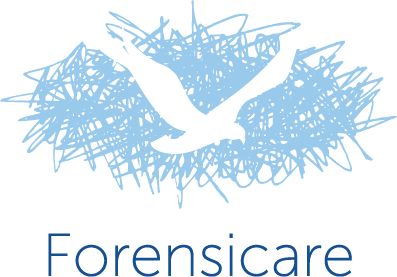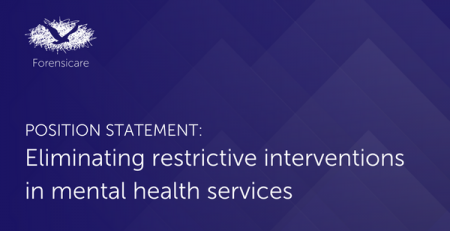The sacrifice you might not know you’re making
Something that comes up often in the reflective practice space is a preparedness to show up for others. And whilst this is admirable and often humbling to witness, it also often occurs at the expense of attending to our own needs and wellbeing. Today, October 10th is World Mental Health Day, with the theme ‘make mental health and wellbeing for all a global priority’.
In this edition of The Ascent, we highlight the common tendency in health professionals to ‘self-sacrifice’ and take this opportunity to remind you that your needs matter as much as those of the people you care about.
The COVID-19 pandemic has resulted in significant worldwide mental health issues. An international study led by researchers from the University of Queensland estimated that anxiety disorders grew by more than 25% worldwide in 2020. A 2020-21 study by the Australian Bureau of Statistics estimates that 1 in 5 people experienced a mental health disorder within the 12 months prior, with the most common of these being an anxiety disorder (16.8%).
The demand on nurses and mental health staff has since increased to an extent that we have never felt before. We have faced high acuity, long working hours and ongoing staff shortages, which have culminated in a perfect storm for fatigue and burnout.
Staff push through significant adversity to attend to the needs of their patients and colleagues but we often see that this requires significant personal sacrifice and even disregard for one’s own needs and wellbeing.
What does self-sacrifice look like?
‘Self-sacrificing’ can take many forms, but in short, it means you have a tendency to prioritise someone else’s needs ahead of your own. Some examples include the following:
- reluctance to take leave (even when you really need it!) to avoid feeling as though you have let down your consumers and/or colleagues
- skipping breaks or working overtime even when you are exhausted
- being in poor physical health but showing up to work anyway (working whilst unwell is so common, it has been termed in literature as “presenteeism” (Johns, 2010))
- having surgery or serious illness and offering to work remotely during the recovery period
- offering to take on some of your colleague’s work, even though you are already at capacity.
On the surface, self-sacrifice might seem like a positive quality to have. It’s all about helping others, being kind, thoughtful, generous and giving. It’s what we are taught as children, and what we teach our own kids, too. In fact, this quality likely had a big role to play in why we chose to work in healthcare in the first place. But this trait that often receives praise and acknowledgement (think statements such as “It was John’s day off, but he was here to help out anyway. Isn’t he amazing?” and “Jane is always going above and beyond for others,”) can have a real downside in terms of our own mental health and wellbeing, leading to negative outcomes such as the following:
- somatisation, where our emotional distress is communicated via somatic (physical) symptoms in the body (e.g., have you ever noticed how feeling nervous can bring on chest pain or nausea? This is called somatisation)
- an elevated stress response, where the immune system is constantly supressed, and we are more likely to become physically unwell
- reduced productivity, where employees lose more productive hours by working while unwell than if they had taken leave (Johns, 2010)
- a build-up of weariness, frustration, resentment and ultimately, disillusionment when our self-sacrifice goes unnoticed, or when others don’t reciprocate
- compassion fatigue and burnout (see our previous editions of the Ascent for more here).
In the spirit of ‘making mental health and wellbeing for all a global priority’, but more importantly, recognising that you matter too, the following might be useful to consider.
- Recognise the warning signs
- Do you have a sense that more and more people are relying on you for help?
- Are you starting to feel weary, stressed or confused?
- Are you starting to feel tired and worn out? Perhaps even on the brink of running on empty?
- Is your physical health starting to suffer? Are you noticing pain, headaches, fatigue or gastrointestinal problems?
- Have you developed unhealthy habits to help you cope, like overuse of medication, food, alcohol or other drugs?
- Find someone like-minded who will understand your experience to talk with. It is quite common amongst people who hold the trait of self-sacrifice at their core, to find it difficult to let others know they are struggling. Finding someone who operates similarly to you, who will understand where you are coming from and why it is so difficult to ask for help, can be helpful.
- Find a way to prioritise yourself over others. Being a good colleague and team player is about showing up, being willing to do the work and putting your best effort forward. Absolutely. But to do that, you must take care of yourself, which will inevitably mean that sometimes, you will need to prioritise yourself over others, especially when your physical or mental health has taken a hit. Try to take a step back and hold a view to the longer-term. Use your reflective skills to help you determine which personal and professional changes are required to maintain job engagement, satisfaction, and wellbeing.
- Take small steps. Try to make incremental decisions that choose good mental health and wellbeing before work/others. Whether it’s a decision to take your breaks today and sticking to it or leaving work on time to go and do an activity that you enjoy after work, it will all add up over time to give your physical and mental health the priority it deserves.
The Ascent is produced by Forensicare’s Reflective Practice team.











